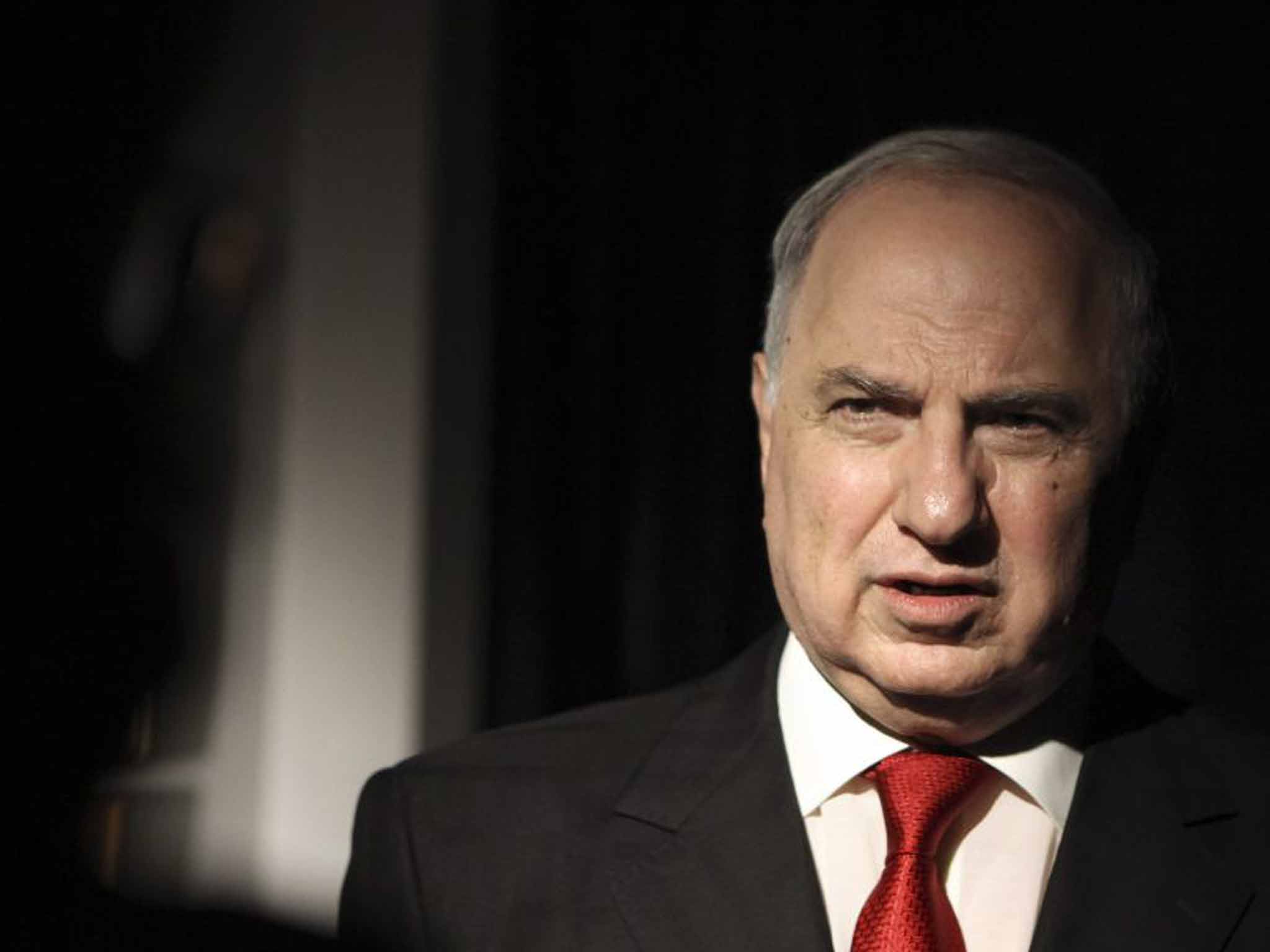Ahmed Chalabi: Politician who furnished Bush and Blair with the false information that led to the allied invasion of Iraq
After 9/11, Chalabi played a key role in convincing the administration that the Iraqi government had weapons of mass destruction and ties to al-Qaeda,

Your support helps us to tell the story
From reproductive rights to climate change to Big Tech, The Independent is on the ground when the story is developing. Whether it's investigating the financials of Elon Musk's pro-Trump PAC or producing our latest documentary, 'The A Word', which shines a light on the American women fighting for reproductive rights, we know how important it is to parse out the facts from the messaging.
At such a critical moment in US history, we need reporters on the ground. Your donation allows us to keep sending journalists to speak to both sides of the story.
The Independent is trusted by Americans across the entire political spectrum. And unlike many other quality news outlets, we choose not to lock Americans out of our reporting and analysis with paywalls. We believe quality journalism should be available to everyone, paid for by those who can afford it.
Your support makes all the difference.Ahmed Chalabi was an Iraqi politician who helped convince the Bush and Blair administrations to invade Iraq and overthrow Saddam Hussein in 2003 by pushing false allegations of weapons of mass destruction and links to al-Qaeda. A secular Shiite politician who had lived in exile for decades, was a leading proponent of the invasion and had close ties to the Bush administration, which viewed him as a favourite to lead post-Saddam Iraq.
However, he had a falling out with the Pentagon after the invasion, and was largely sidelined by other Iraqi leaders, many with close ties to Iran. Chalabi had most recently served as the chairman of parliament's finance committee, and was previously a deputy prime minister.
The scion of a wealthy Baghdad family, Chalabi fled Iraq as a teenager when the monarchy was overthrown. He graduated from MIT in 1965, and gained a PhD in mathematics at the University of Chicago. He became a leading figure in Iraq's exiled opposition in the 1990s and cultivated close ties with the future US Vice President Dick Cheney and Washington's neo-conservatives, who favoured a more muscular policy in the Middle East.
After 9/11, Chalabi played a key role in convincing the administration that the Iraqi government had weapons of mass destruction and ties to al-Qaeda, unfounded claims at the heart of the case for war. After the invasion, he was appointed to the Iraqi governing council and went on to chair Iraq's de-Baathification Committee, which worked to purge the government of Saddam loyalists but was seen by the country's Sunni minority as a means of sectarian score-settling by the newly empowered Shiite majority. His relationship with the US soured, and in 2004 US forces raided his home following suspicions that he was funnelling intelligence to Iran.
Chalabi also faced accusations of financial impropriety linked to business dealings in Jordan. In 1992 a Jordanian court convicted him in absentia for bank fraud. He was sentenced to 22 years' hard labour and ordered to pay back $230m of the bank's funds the court said he had embezzled – a sentence he never served.
His Baghdad home was a testament to one of his passions, art collecting, with paintings lining the hallways and sculptures decorating each room.
Ahmed Abdel Hadi Chalabi, politician: born 30 October 1944; married Leila Osseiran (four children); died 3 November 2015.
Join our commenting forum
Join thought-provoking conversations, follow other Independent readers and see their replies
Comments